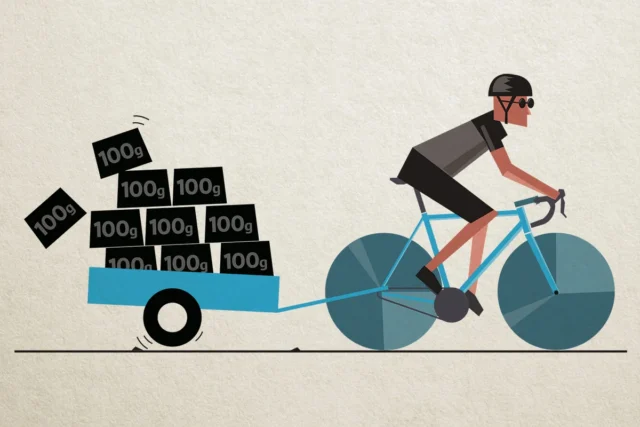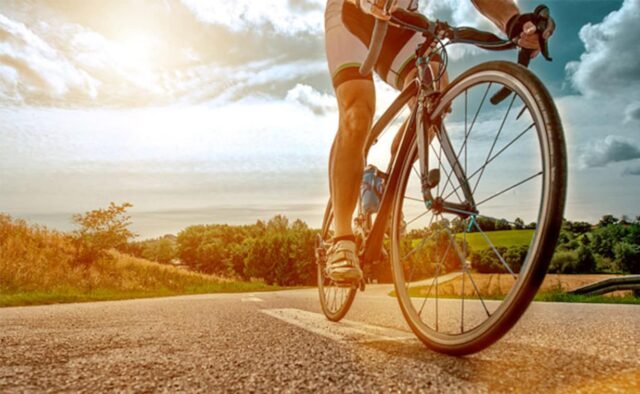
It’s been a few days since you started riding your bike to work. You are now very weary and wondering whether it will get any easier with time. Well, it is natural to feel tired if you have just started biking. It will take some time for your body to get adapted to this change in your routine. Read this article to learn why you feel tired and what you can do about it.
Commuting by bike is getting more and more popular these days. Not only is it an excellent way to save fossil fuels, but also helps in staying fit. For a rookie bike commuter who is not used to regular physical activity, it is quite natural to have questions like, “Will the tiredness fade with time or not?” “Will it get easier with time?” Well, to tell you the truth, cycling to work does get easier with time. You can get to know more about the latest Daily Cycle News at DougReport.
You may become used to commuting by bike in a few weeks to months. How long it takes and how easy it gets depends on both the rider’s fitness and the route’s length.

How Long Will It Take For Your Body To Adapt
One to three months is a reasonable time frame for becoming used to biking. In the beginning, you may be tempted to pedal too rapidly because you want to show and prove that you can move fast. However, within some time you will feel as if your body is tired beyond repair and you need a break.
Pay heed to your body’s cues and slow down! During the habit-forming phase, go at a pace that is comfortable for you and commute as often as you want. If you’ve grown used to riding to work on a regular basis (e.g. twice a week) and are certain that you can do it for the long term, you may increase your pace and ride more often. But don’t forget to take it slow and steady!
In addition, you should create attainable pace targets for yourself. Don’t let yourself get disappointed if your average speed on a 5-mile ride is lower than 10-14 mph. With minimal work and training, you can boost your speed to between 13 and 17 mph, but most bike commuters don’t ride faster than 17 mph.
You should spend the first few weeks getting to know the route, your new habit, your bike and the surrounding traffic, among other things. In the end, perseverance and patience will pay off.
Instead of setting a target for time, tempo, or frequency, get a sense of what you’re capable of and accept that you may need a day off if you’re feeling tired or overwhelmed. The fact that you take a day off does not indicate that you have failed; rather, it is a sign that you are on your way to becoming a healthier version of yourself.
As your muscles and joints wear out, you’ll begin to need a break sooner. You may not be able to ride five days a week for up to three months. Plan some adequate breaks in between your cycling sessions.

Understanding Your Body
It’s best to not put too much pressure on yourself when you first start out as a full-time commuter. You should concentrate on what you can do to make biking to work more enjoyable, rather than focused on achieving specific objectives.
If riding your bike to work 2-3 or even 4 days a week feels good to you, this is a great development. As long as you don’t overwork yourself, you won’t be tempted to give up on your goals.
Taking it one step at a time is the best way to accomplish your goal, as it gives you time to get used to your new method of transportation, learn how to plan your trip, and so on. Even little adjustments to your seat or handlebars may have a big influence on how you feel after a ride.
Start With Easy Routes
It is critical that you take the fastest route possible to work while maintaining a steady pace. Initially, at least. Adding extra distance will just make the trip more taxing.
If you have a choice among many routes, choose the one with the lowest elevation change (ups and downs). Even though the descents feel fantastic, cycling upwards is always more strenuous on your muscles than riding on flat ground.

Stretching Your Muscles Is Essential
Stretching is often taken for granted, yet depending on your body type, it may have a major influence on how much fatigue you feel after riding. We all become stiff when we get off the bike. Make sure to do some stretching before and after your ride. Stretching your quadriceps after a bike may help alleviate any post-ride aches and pains.
Take Adequate Breaks
Going from no exercise to exercising twice a day, five days a week, would exhaust anybody. Resting your body for a few days will do wonders if you are beyond exhausted. Also, make sure to give your body to relax and do not push your body beyond its limits.

Take Proper Nutrition
Food is like fuel in that it is essential to our survival. Your body is more durable than a vehicle engine, but the way you feed it may influence how your body reacts to your rides and how much muscle you gain as a result.
You’ll need more calories on top of what you’re already eating. It’s not uncommon to become hungry as soon as you start riding your bike. Make sure to have a proper balanced diet. Also, do not go riding on an empty stomach. This will lead you to feeling tired way too fast.
Conclusion
With time, cycline will get easier. As you become stronger and fitter, your body will get adapted to cycling. With time, you can increase the difficulty level. However, make sure to eat properly and take adequate rests in between your cycling sessions.









